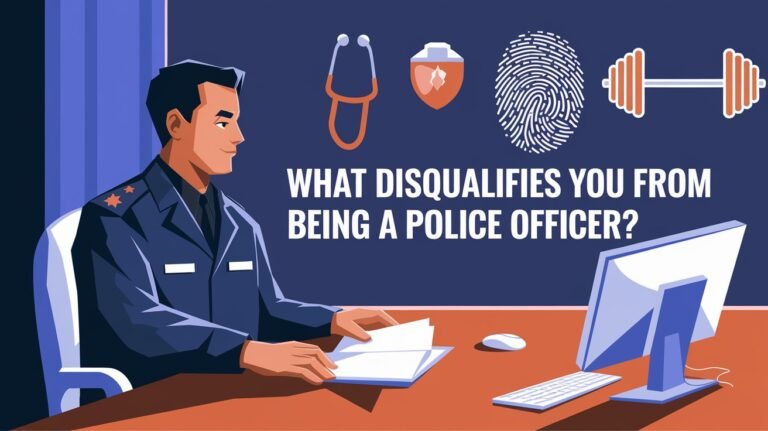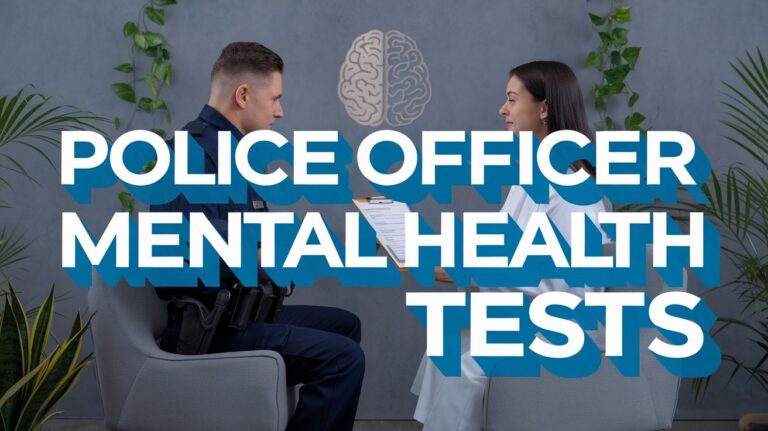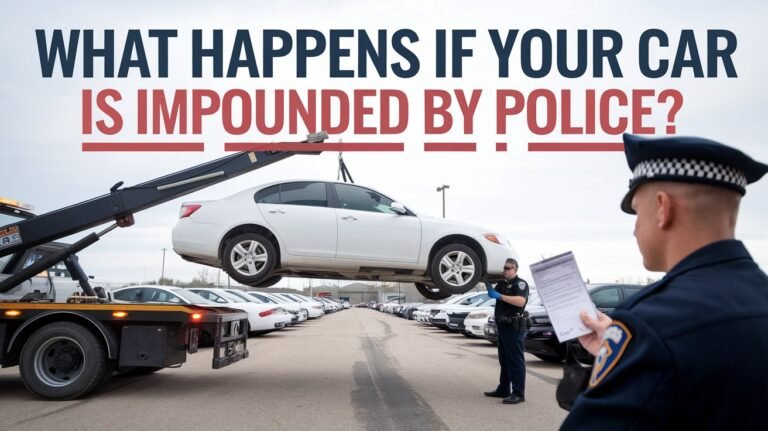Why Are Police Called Cops: Origin and Meaning

The term “cop” is the most common and oldest nickname for police officers in the United States. It’s so well-known that it’s even in the dictionary. The word “cop” comes from an Anglo-Saxon verb meaning “to catch, grab, or capture,” from the 1100s.
The first written use of “cop” in English was in 1704. Since then, “cop” has grown to be a widely accepted term for law enforcement officers in America. Knowing the history and origins of “cop” helps us understand the language and culture of law enforcement.
The Etymology of “Cop” in Law Enforcement
The word “cop” has a fascinating history in police terminology. It comes from Anglo-Saxon origins. Originally, “cop” meant “to catch or seize.” It later became a noun for those who enforce the law.
Anglo-Saxon Origins and Evolution
The verb “to cop” started in Anglo-Saxon language. It meant to arrest or apprehend people. Over time, “copper” became the noun for those doing this job. This change marked a big shift, from action to the person doing it.
Early Documentation in English Language
The first time “cop” was linked to law enforcement was in the mid-19th century. By 1844, “to cop” meant “to arrest.” By 1846, people started calling police officers “coppers” in everyday talk.
Transition from Verb to Noun Usage
The term “cop” evolved further, becoming shorter from “copper” to “cop” by 1859. This change made “cop” a common noun for police in the U.S. Today, “cop” is a well-known term for law enforcement, showing its lasting impact.
| Timeline | Development |
|---|---|
| Around 1844 | The verb “to cop” was recorded as meaning “to arrest” |
| 1846 | Police officers were colloquially referred to as “coppers” in everyday conversation |
| 1859 | “Copper” was shortened to the more concise “cop” |
“Cop” has become synonymous with “police” in the US, making it one of the most common and oldest nicknames for law enforcement officers.
Why Are Police Called Cops
The term “cop” is deeply rooted in American culture. It is now a common way to refer to police officers. This nickname started in the mid-19th century, from the verb “to capture or seize.”
By the 1840s, people started calling police officers “coppers.” This term shortened to “cop” by 1859. At first, it had a negative meaning. But now, it’s a key part of police culture and language, showing the informal police titles used today.
“The nickname ‘cop’ has become so commonly used in the US that it is synonymous with ‘police’ and is used both in official terms and by law enforcement officers themselves.”
In the 1960s and 70s, “the fuzz” became a popular term. There are different theories about its origin. Some say it’s from police radio static or the look of police officers.
“5-0” also became well-known from the TV show “Hawaii Five-O.” It referred to the Hawaiian police force, but it wasn’t always accurate.
Other terms in police culture and language include “the heat.” It might come from police car lights or the pressure in interrogations. “Boys in blue” comes from the classic navy blue uniforms of police officers.
Common Misconceptions About Police Nicknames
Police officer terms and nicknames have always been interesting and misunderstood. Two popular myths about “cop” are the Copper Badge Theory and the Constable on Patrol Myth. But, these myths don’t hold up to fact-checking.
The Copper Badge Theory
The Copper Badge Theory says “cop” comes from copper badges and buttons on police uniforms. But, this is probably not true. Copper badges weren’t used by all police, and “cop” was around before they became common.
The Constable on Patrol Myth
Another myth is the Constable on Patrol Theory. It claims “cop” stands for “Constable on Patrol.” But, there’s no proof this is how the term started.
Historical Corrections
The real start of “cop” is tied to the verb “to cop,” which means “to capture” or “to arrest.” This verb use began in the early 19th century. It shows the main job of police officers was catching criminals. Over time, “cop” turned from a verb to a noun, becoming a common term for police.
Learning the real story behind police terms helps us understand law enforcement better. It also clears up long-standing myths and misconceptions.
From “Copper” to “Cop”: Historical Timeline
The journey of police terminology is quite interesting. The term “cop” has a deep history in law enforcement. It started as a verb, “to arrest,” around 1844. By 1846, officers were called “coppers,” later shortened to “cop.”
At first, “cop” was seen as a negative term. But, it has become widely accepted and even liked by police. Now, “cop” is a common word for “police” in the U.S. It’s a key part of the history of police terminology and cop etymology.
The shift from “copper” to “cop” shows how language and law enforcement terms evolve. As police roles have changed, so have the words for them. This reflects how society’s views and attitudes have shifted over time.
The Evolution of Police Terminology in America
The way American police talk has changed a lot over time. This change shows how the culture and views of law enforcement have shifted. Now, the police culture and language is filled with a mix of cop vernacular.
Early American Police Force Language
At first, police used formal words like “constable” and “patrolman.” But as police became more common, their language started to get more casual.
Regional Variations in Police Terms
Different parts of the U.S. have their own police culture and language. For example, some call police “flatfoots,” while others say “bulls” or “gumshoes.” These differences show how culture and identity shape police language.
Modern Usage and Acceptance
In recent years, using informal police terms has become more accepted. Even police officers now use nicknames like “cop,” which was once seen as negative. This change is due to media and the need for police to be more open and relatable.
“The language of law enforcement has always been a reflection of the changing attitudes and dynamics within the profession. As American policing has evolved, so too has the cop vernacular that defines it.”
Popular Police Nicknames Through the Ages
The world of law enforcement is filled with nicknames that show its rich history. Terms like “cop,” “the fuzz,” and “5-0” give us a peek into how people view police. These names change over time, showing how our language and views on police have evolved.
“Cop” is the oldest and most common nickname in the US. It started in 1844, when “cop” meant “to take or seize.” By 1846, people began calling police officers “coppers” in everyday talk.
In the 1960s and 70s, “the fuzz” became a popular term. Its exact origin is unclear, but it’s believed to have started in the 1960s. “5-0” became famous thanks to the TV show “Hawaii Five-O,” which aired from 1968 to 1980.
Other nicknames like “gumshoe” for detectives and “Smokey” for officers have also been used. “Gumshoe” comes from the 19th-century gum rubber shoes that helped detectives sneak around. “Smokey” comes from the hats that look like Smokey the Bear’s.
Police officers around the world have their own unique nicknames. In the UK, they’re called “bobbies” after Sir Robert Peel. In Canada, they’re known as “mounties” because of the Royal Canadian Mounted Police. In Vietnam, traffic police are called “Pikachu” because of their yellow uniforms.
These nicknames give us a glimpse into the changing views and language of policing. They also show the diverse cultures that have shaped law enforcement over the years.
Origins of “The Fuzz” and “Five-0”
Law enforcement has a rich history of slang terms and informal titles. “The fuzz” and “Five-0” are two well-known examples. Each has its own story and cultural importance.
Television’s Influence on Police Terminology
“Five-0” comes from the TV show “Hawaii Five-0,” which aired from 1968 to 1980. The show was about a state police unit. Since then, “Five-0” has become a common way to refer to the police.
“The fuzz” became popular in the 1960s and 1970s. It might come from police radio static or the fuzzy hats some UK officers wore.
Cultural Impact on Law Enforcement Names
Media and popular culture have a big impact on how we talk about the police. “The fuzz” and “Five-0” show how deeply these terms are rooted in our culture. They’ve moved beyond their origins and taken on a life of their own.
These slang terms show how our views of the police have changed. They also highlight the power of stories and media to shape our understanding of justice.
| Slang Term | Origin | Usage and Connotation |
|---|---|---|
| “The Fuzz” | Possibly derived from the static sound of police radios or the fuzzy hats worn by some law enforcement officers in the United Kingdom. | Gained widespread usage in the 1960s and 1970s, often used in a negative or derogatory manner towards the police. |
| “Five-0” | Originated from the classic American television series “Hawaii Five-0,” which aired from 1968 to 1980. | Remains a popular slang term for the police, often used as a neutral or even respectful reference to law enforcement officers. |
Historical Roots of American Policing
The history of American policing goes back to the early 1700s. It started with slave patrols to watch over enslaved Black people. After the Civil War, these groups became militias enforcing harsh Black Codes.
In the early 1900s, cities started their own police forces. But these early agencies mainly helped enforce Jim Crow laws and keep racial lines. This dark past has shaped police culture and language over the years.
| Statistic | Value |
|---|---|
| Police murders of unarmed African Americans since 2015 | 135 |
| Percentage of these incidents where the officers were White | 75% |
| Total people reported to have died at the hands of police in 2020 | 1,126 |
| Percentage of these deaths caused by gunshots | 96% |
The Black Lives Matter movement grew after the killings of Trayvon Martin, Michael Brown, and George Floyd. It highlighted racial bias and police brutality. The death of Ronald Greene, an African American man, shows the need for police reform and accountability.
“Since 2015, there have been 135 instances in which police have murdered unarmed African Americans. Of these 135 instances, 75% of the time, the officers involved were White.”
Global Police Nicknames and Their Stories
Police nicknames vary worldwide, showing the unique cultures and histories of each country. In the United States, “cop” is the oldest and most common term. But other nations have their own special names for their police.
British “Bobbies” and Their Legacy
In the UK, police are called “Bobbies,” named after Sir Robert Peel, who started the London police in 1829. This term has become a symbol of British policing, showing the country’s focus on community policing.
International Police Terminology
Outside the English-speaking world, police nicknames are different. In Canada, the Royal Canadian Mounted Police are known as “Mounties,” thanks to their famous horseback patrols. In Vietnam, traffic police wear yellow uniforms, earning them the nickname “Pikachu” for their resemblance to the Pokémon character. These names highlight the varied cultural impacts on police terms globally.
Questions People Ask Most
Why are police officers referred to as “cops”?
“Cop” is the oldest nickname for police in the US. It’s used by officers and is in the dictionary. The word comes from an Anglo-Saxon verb “cop” meaning to catch, dating back to the 1100s.
What is the etymology of the word “cop”?
“Cop” comes from an Anglo-Saxon verb for catching or capturing. It changed from a verb to a noun, becoming “one who cops.” By 1846, police were called “coppers.” The term “cop” was used by 1859 and is still used today.
How did the term “cop” become associated with police officers?
“Cop” became a term for police because of its shift in meaning. It started as a verb for arresting and became a noun for those who do it. It became popular in the mid-19th century and is now widely accepted.
What are some common misconceptions about the origin of the term “cop”?
Some think “cop” comes from copper badges or the Constable on Patrol myth. But, it actually comes from the verb “to cop” meaning to capture or arrest.
What is the historical timeline of the term “cop” in law enforcement?
“Cop” started as a verb for arresting in 1844. By 1846, “copper” referred to police, and “cop” appeared by 1859. It was once seen as derogatory but is now widely accepted.
How has police terminology evolved in the United States?
Police terms have changed over time, with different words used in different places. Early terms were formal, but slang and nicknames became common. Now, even officers use informal titles like “cop.”
What are some other popular police nicknames?
Police have many nicknames, like “the fuzz,” “5-0,” and “the heat.” Older terms like “gumshoe” and “Smokey” are less common. These names often come from police work, uniforms, or culture.
Where did the terms “the fuzz” and “five-0” come from?
“The fuzz” started in the 1960s and 70s, possibly from police radio static or British police hats. “Five-0” comes from the TV show Hawaii Five-O (1968-1980). These names show how media and culture shape police nicknames.
How has the history of American policing influenced its terminology?
American policing began with slave patrols in the 1700s. These groups became militia-style groups enforcing Black Codes after the Civil War. By the 1900s, police departments enforced Jim Crow laws. This history shaped police culture and language.
Are there any interesting police nicknames from other countries?
Yes, police nicknames vary worldwide. British police are called “bobbies” after Sir Robert Peel. Canadian mounted police are known as “mounties.” In Vietnam, traffic police are called “Pikachu.” These names reflect cultural and historical influences on police language globally.






